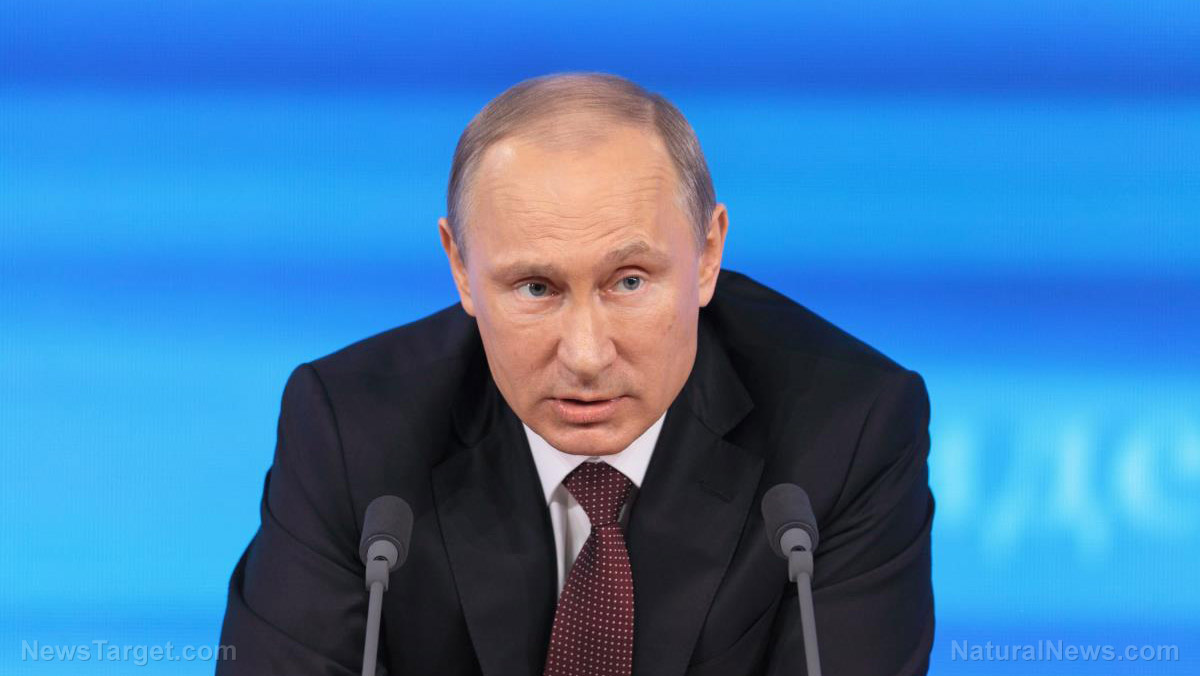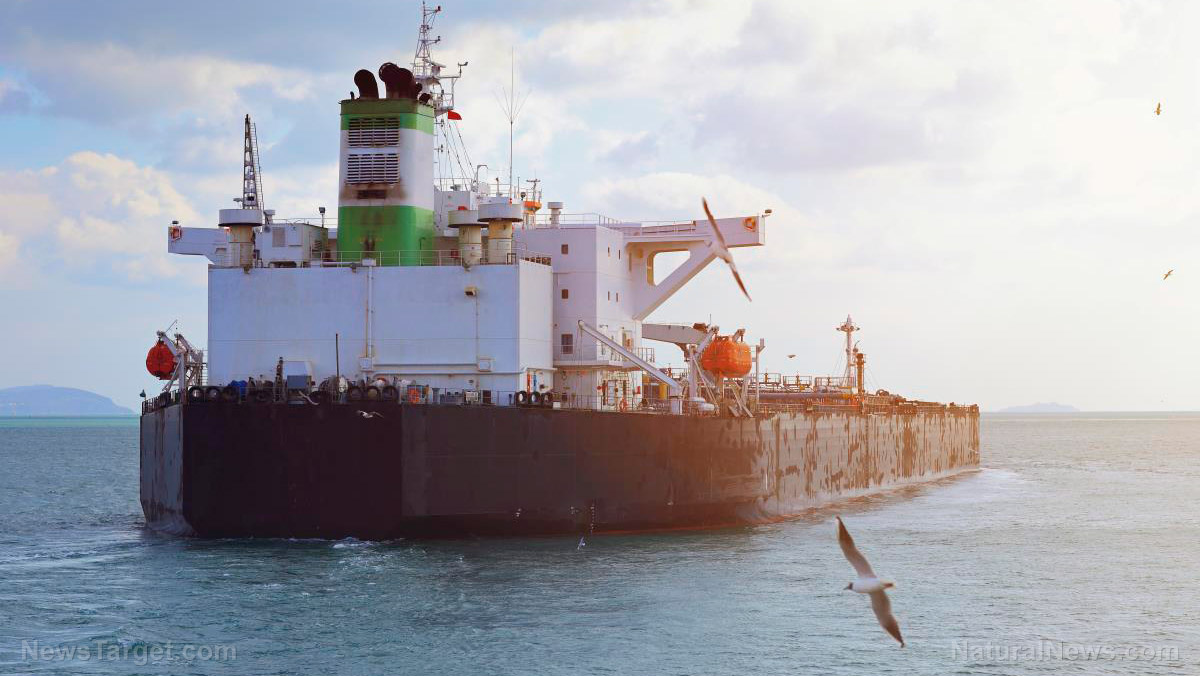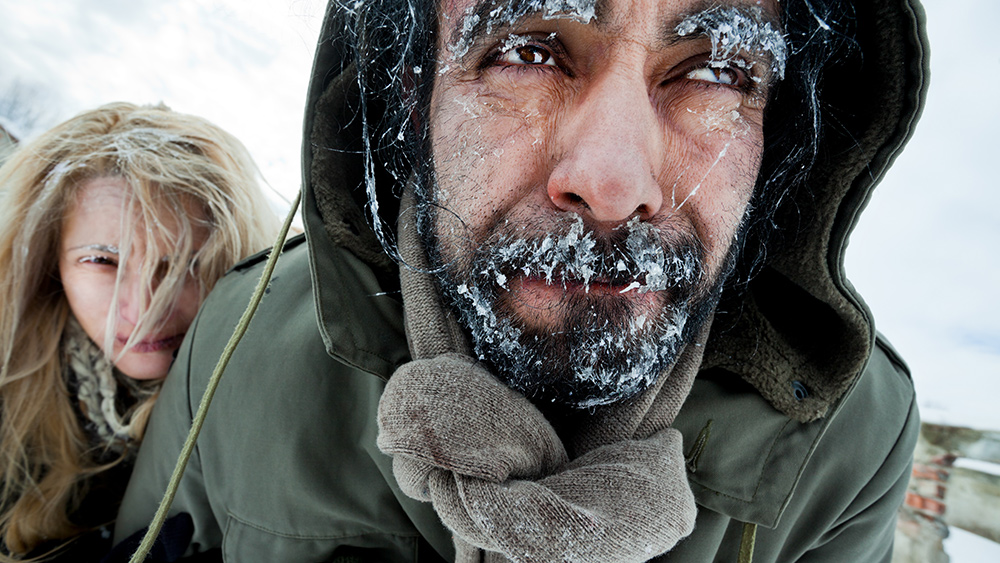 Parler
Parler Gab
Gab
Russia expected to OUTPERFORM all G7 and EU economies in terms of GDP growth
Russia's economy has bounced back strongly in 2023, aided by rising government spending – specifically on military production. A Reuters poll of analysts projected that Russia's GDP could increase by 3.1 percent in 2023, but also noted growth dwindling to 1.1 percent in 2024 as high interest rates weigh down the economy. Putin projected a 3.5 percent growth rate for Russia's 2023 GDP on Dec. 14. The country's GDP growth for the third quarter of 2023 was affirmed in early December at 5.5 percent, compared to the same period in 2022 that saw Russia's GDP shrink by 3.5 percent. Given this, Moscow is anticipated to outperform the economies of the Group of Seven, the European Union and all other nations that joined sanctions in terms of GDP growth. Industrial production growth is estimated at 3.6 percent, and external public debt has reduced from $46 billion to $32 billion. The government has committed to continue working to lessen inflation, which remains persistently high, and is expected to reach seven percent. Real wages in Russia also continue to increase and real incomes are estimated to have risen five percent this year, amidst a historically low unemployment rate of 2.9 percent. Because of the external pressure on the Russian economy and the national currency, the Central Bank of Russia (CBR) took a timely decision to back the ruble, which had plunged to a 16-month low against the dollar and euro in mid-August. The CBR's 16 percent interest rate hikes have led to a fall in imports and, consequently, a decrease in demand for foreign currency from importers. The Russian currency's bounce back has sped up following capital control measures initiated by the government. Analysts predict the ruble's rally to remain in 2024. Moreover, a decrease in the budget deficit after growth in oil revenue together with increased sales of foreign currency earnings by Russian exporters has also affected the exchange rate, The Russian budget has decreased its reliance on oil revenue, as the government has long tried to spread out income sources and scale back the share of exports of natural resources like oil and gas in its budget revenue. Income from outside the oil and gas sector is projected to surpass three trillion rubles ($32.7 billion) in 2023, as reported by Russian Finance Minister Anton Siluanov. At the same time, Russia's revenue from oil and gas exports is increasing and has surpassed expectations. Since Western countries effectively prohibited its oil and gas, Russia has efficiently diverted energy exports to Asia. Visit RussiaReport.news for more stories about the Russian economy. Watch this video that explains why the Russian economy is not in danger of an economic collapse despite sanctions. This video is from the High Hopes channel on Brighteon.com.More related stories:
Russia to resume foreign exchange purchases to boost currency reserves. Russia to shift 75-80% of oil exports to “friendly” nations HYPOCRISY: U.S. to INCREASE IMPORTS from Russia amid economic sanctions on Moscow. Sources include: RT.com Firstpost.com Brighteon.comOil prices could double as Red Sea attacks continue, experts warn
By Cassie B. // Share
Health officials in two Australian states warn of the spread of a more infectious COVID-19 variant
By Laura Harris // Share
Rasmussen poll: 45% of Americans financially WORSE OFF under Biden compared to a year ago
By Laura Harris // Share
CNN admits ALL of its Gaza-related coverage is examined by Israeli military censor
By Ramon Tomey // Share
Governments continue to obscure COVID-19 vaccine data amid rising concerns over excess deaths
By patricklewis // Share
Tech giant Microsoft backs EXTINCTION with its support of carbon capture programs
By ramontomeydw // Share
Germany to resume arms exports to Israel despite repeated ceasefire violations
By isabelle // Share










